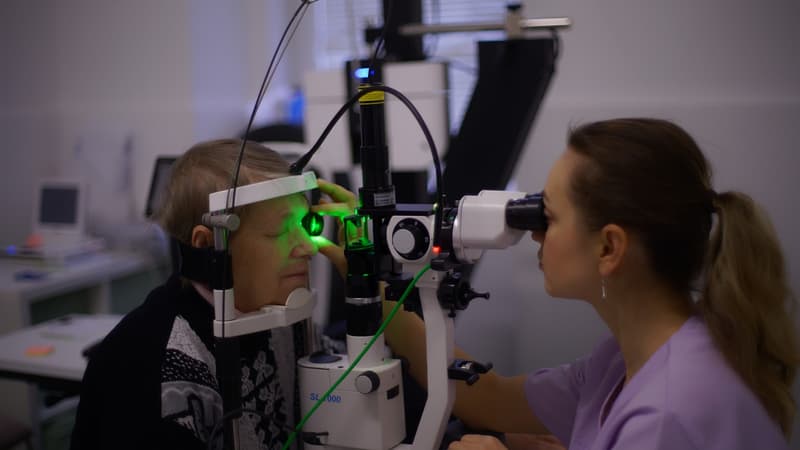Last February, Cecil Farley, 91, made history by becoming the first British patient to receive an artificial cornea, the BBC reported on Tuesday, June 4.
Originally from Chobham, in the county of Surrey, this man had to wait a year before being able to benefit from this unprecedented surgical intervention after the first failure of a human cornea transplant. The man, who had suffered from problems in his right eye for more than 15 years, had completely lost his sight over the years.
“Your life is fuller when your eyes work properly. You don’t realize how demoralizing it is until it happens to you,” he told British radio.
An artificial cornea
The device, similar to a contact lens placed in the eye, is called “EndoArt.” Created by the company EyeYon Medical and offered by the Frimley Health NHS Foundation Trust hospital in England, it is the first artificial implant capable of replacing the inner wall of the cornea located in the front part of the eyeball.
This lining, responsible for hydrating the cornea, can, if damaged, cause blurred vision and other eye problems.
For Thomas Poole, the ophthalmologist who performed Cecil Farley’s operation, the transplant was a real success. “I expected things to be quite difficult, but once the graft was completely fixed and started working, I felt it worked very well,” he told the British newspaper The Guardian.
“I can still see my wife after 63 years of marriage, we can carry on as always and live our lives as fully as possible,” said Cecil Farley.
On X (formerly Twitter), Jordan Pettitt, photojournalist, shared images of the 91-year-old Briton’s trip.
For his part, Professor Sir Stephen Powis, national medical director of NHS England, welcomed this new surgical advance. “The use of artificial corneal transplants represents an exciting and innovative advance in eye care, which could potentially benefit many patients who need treatment to improve or restore their vision,” he told The Guardian.
200 receivers worldwide
To date, only 200 people, including Cecil Farley, have received this type of artificial cornea worldwide. In the past two months, ophthalmologists Thomas Poole and Hanbin Lee say they have transplanted artificial corneas to four new patients.
To benefit from this type of implant, count on approximately 1,800 pounds. “Looking ahead, I think this could end up replacing human corneas in certain types of corneal transplant patients,” added Thomas Poole.
“Within 10 or 20 years, this technique could become the norm, that is, we will no longer need a human cornea and we will simply have to take it out of the box,” he suggested to The Guardian.
Furthermore, this innovation could provide an additional treatment option for those who rely on donated transplants. In fact, according to an activity report from the NHS Blood and Transplant centre, responsible for the supply of blood, tissues and organs to hospitals in England, in 2021, 10% of people registered on the organ donation register had chosen to not to donate their corneas if they were going to die.
However, according to estimates from the University of Southampton (England), the United Kingdom is currently facing a shortage of donations needed for operations. The NHS blood and transplant center hopes to reach a weekly reserve of 350 eyes for use in surgery or for research purposes. Between April 2021 and March 2022, only 88 eyes were donated on average per week in the country.
Source: BFM TV


